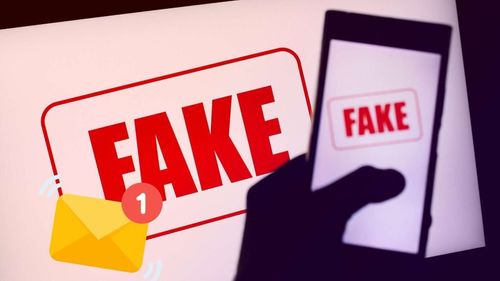In today's digital age, email has become a cornerstone of communication. Whether you're signing up for a new service, subscribing to newsletters, or making online purchases, email verification is a ubiquitous part of the process. However, there's a darker side to this verification process: the use of fake email addresses. As an expert in online security, I'm here to provide you with comprehensive insights into the world of fake email for email verification, how it operates, and how to protect yourself from potential scams.
Understanding the Role of Email Verification
Email verification is a crucial part of online interactions for several reasons:
User Authentication: Many online services require email verification to ensure that users are who they claim to be.
Communication: It serves as a means to communicate with users effectively, whether for transactional emails or marketing purposes.
Security: Email verification helps protect against unauthorized access and potential fraud.
However, not all email verifications are genuine. In some cases, individuals may use fake email addresses for various purposes, including privacy, spam avoidance, or even malicious activities.
Exploring the World of Fake Email Addresses
Fake email addresses, often referred to as disposable or temporary email addresses, are used to receive emails without revealing a user's actual email address. These addresses are typically generated through online services that offer temporary inboxes. Here's how they work:
Temporary Inboxes: Users visit websites or apps that provide temporary email services.
Random Address Generation: The service generates a random email address for the user, often with a predefined domain.
Email Reception: The user can receive emails sent to this temporary address in a temporary inbox.
Short Lifespan: These addresses have a limited lifespan, often ranging from a few minutes to a few days.
The Pros and Cons of Fake Email Addresses
Fake email addresses have their advantages and drawbacks, depending on the user's intent:
Pros:
Privacy: Users can maintain their anonymity and protect their primary email address from spam or unwanted communications.
Spam Avoidance: Disposable email addresses are effective in avoiding spam since they can be discarded after use.
Security: They can be used to sign up for services where privacy and security are a concern.
Cons:
Limited Functionality: Some services may not accept disposable email addresses for registration, limiting their usability.
Risk of Misuse: Fake email addresses can be used for malicious purposes, such as creating fake accounts or conducting scams.
Temporary Nature: Users need to be quick in accessing their temporary inboxes since email addresses and messages have a short lifespan.
Protecting Yourself from Scams
While fake email addresses can serve legitimate purposes, it's essential to be aware of potential scams and fraudulent activities associated with them. Here are some tips to protect yourself:
Use with Caution: Only use fake email addresses for legitimate purposes, such as avoiding spam, rather than engaging in malicious activities.
Beware of Phishing: Be cautious when receiving emails to your disposable address. Scammers may use them to conduct phishing attacks.
Check Senders: Always verify the legitimacy of senders before clicking on links or providing personal information.
Monitor Emails: Regularly check your temporary inboxes to avoid missing important communications.
Common Questions About Fake Email for Email Verification
Let's address some frequently asked questions related to fake email for email verification to provide you with a comprehensive understanding of this topic:
1. Are fake email addresses illegal to use?
Fake email addresses themselves are not illegal, but their use for malicious activities, such as fraud or harassment, is.
2. Can I use a fake email address to sign up for online services?
While some services may accept fake email addresses, many reputable platforms require a valid email for registration.
3. Are there legitimate reasons to use fake email addresses?
Yes, individuals may use them to protect their privacy or avoid spam when engaging with online services.
4. How can I identify a fake email address?
Fake email addresses often have random characters and domains. They may also be associated with disposable email services.
Conclusion
Fake email addresses have their place in the digital landscape, offering users a level of privacy and security. However, it's crucial to use them responsibly and be aware of potential scams and fraudulent activities. By understanding how fake email for email verification operates and following best practices, you can navigate the online world safely and securely.



